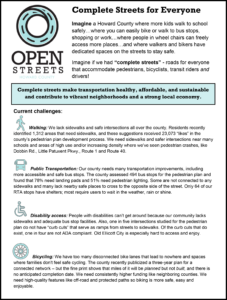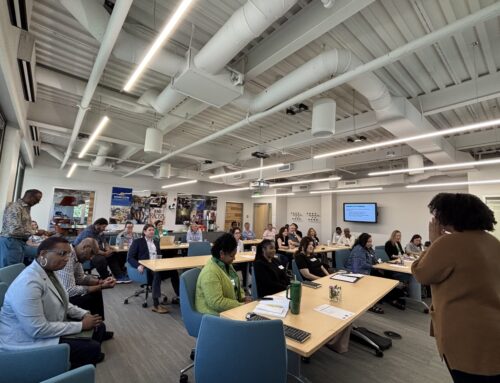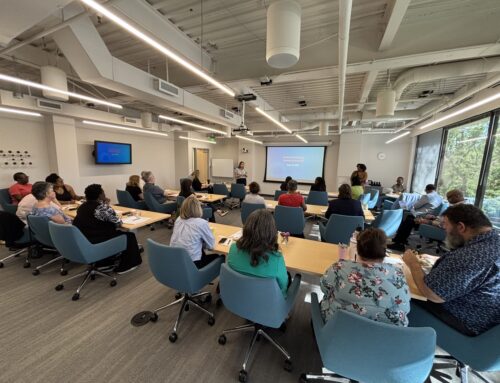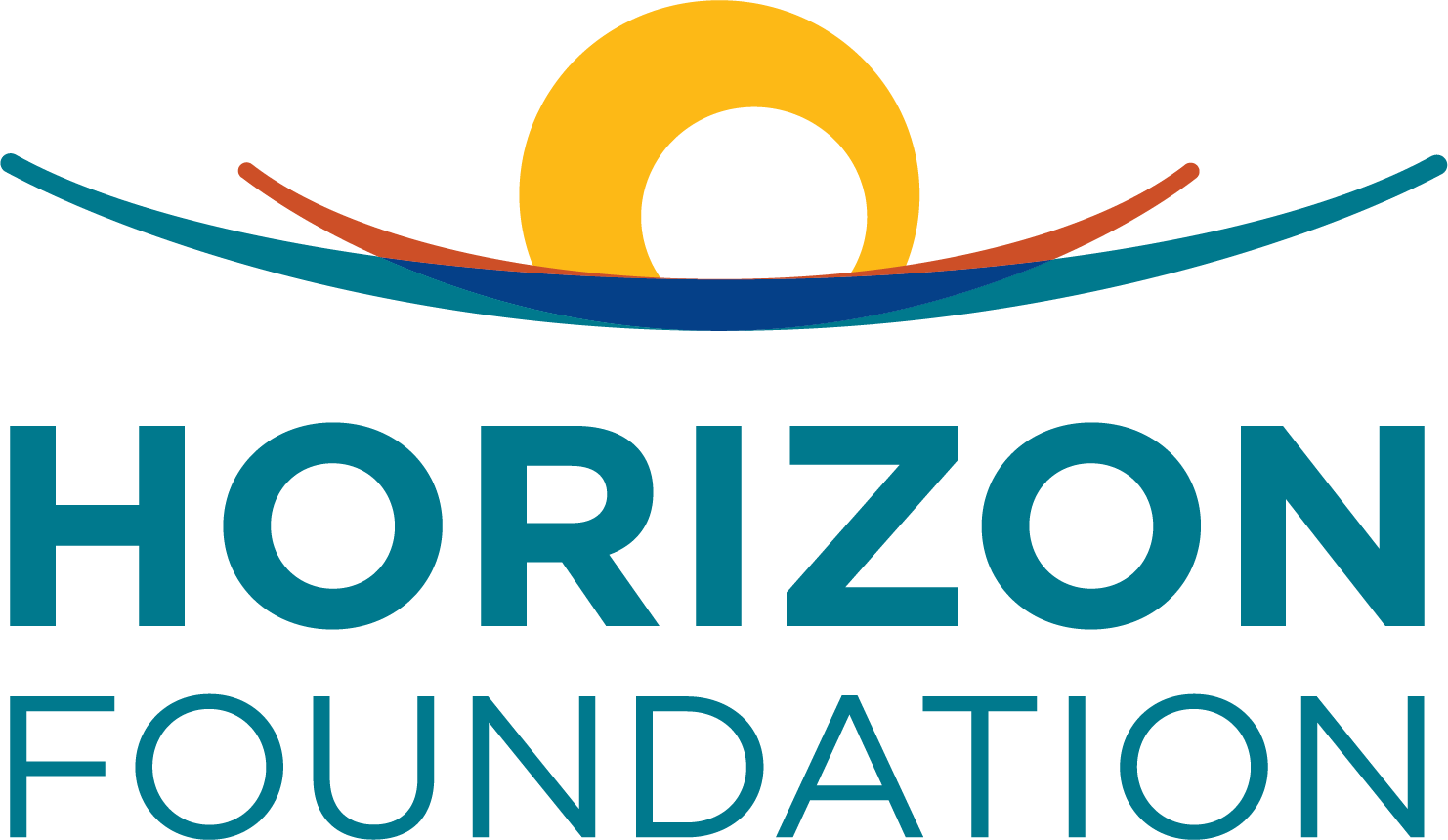Nearly 100 people—including 16 local political candidates and representatives from People Acting Together in Howard (PATH), Bicycling Advocates of Howard County and the Horizon Foundation—explored the Guilford community on foot this week to learn how we can build roads that better accommodate pedestrians, bicyclists, transit riders, drivers and people with disabilities. Candidates and community members learned about the benefits of building these “complete streets” and participated in walk audits, facilitated group walks where they assessed the current state of nearby roads.
Taking off from First Baptist Church of Guilford, attendees walked through grass and on narrow road shoulders. Community members pointed to the lack of safe and accessible facilities for pedestrians, bicyclists and people with disabilities.
“A lot of families are effectively trapped in their house because they are scared to walk in this area,” said Annalisse Daly, a mother who lives in Guilford and often walks her children to school. Daly and her daughter calculated that installing .7 mile of sidewalks would enable people in 504 houses to safely walk to school.
Rev. Dr. Tyrone P. Jones, pastor of the First Baptist Church of Guilford, spoke about how the lack of accessible infrastructure has impacted his family and congregants. Although he lives 0.2 miles from the school, approximately a 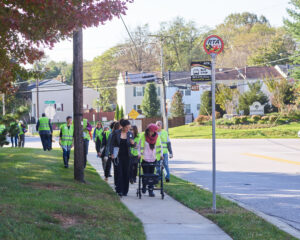 four-minute walk, his children had to be bussed. “My kids had to be bussed from my house to Guilford elementary school when we could walk to Guilford Elementary School if we had the appropriate sidewalks and pedestrian walkways,” he said.
four-minute walk, his children had to be bussed. “My kids had to be bussed from my house to Guilford elementary school when we could walk to Guilford Elementary School if we had the appropriate sidewalks and pedestrian walkways,” he said.
He added that 40 percent of his church’s congregation lives in the community, “and as a pastor, I want them to feel safe on their way here.”
Participants with walkers, wheelchairs and strollers found the lack of sidewalks, paths and crosswalks especially challenging. “As a person with a disability, I absolutely would not feel comfortable walking around here,” said Audrey Sellers, an independent living specialist with Accessible Resources for Independence. Many bus stops in the area are just a sign in grass, preventing people using wheelchairs from using local bus lines.
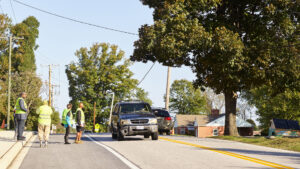
The group discussed next steps including advocating for a Complete Streets policy, which would require that all road users are considered when roadways, sidewalks, and paths are built or resurfaced. Participants also highlighted the need for significantly increased county funding and active involvement by local neighborhoods to ensure that Howard County roads across the area are built to accommodate everyone.
Alex Obriecht, owner of Race Pace Bicycles, emphasized the importance of political leadership in making these changes possible. “Communities need a champion who says, ‘I’m going to fix it,’” he said.
Local advocates also play a critical role in calling local leaders to action, said Katie DiSalvo-Thronson, community engagement officer at the Horizon Foundation.
“We hope today will inspire politicians to lead on these issues, but we know that local people are ready to work for change,” she said. “Local leaders want these basic services. They’re the most persistent advocates you can find.”

